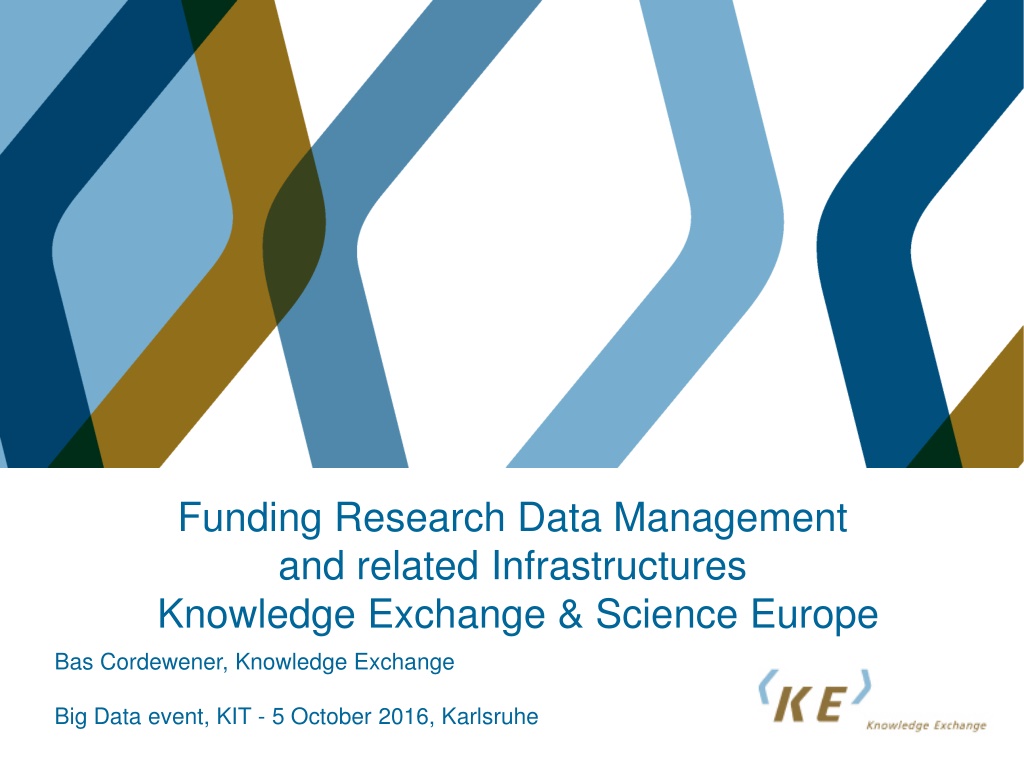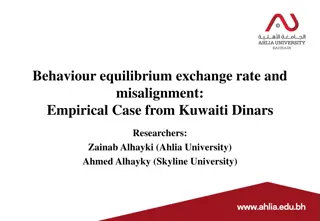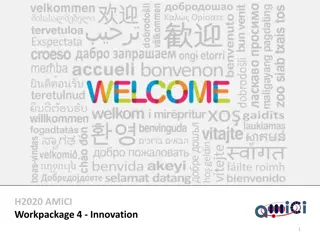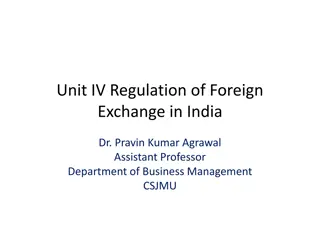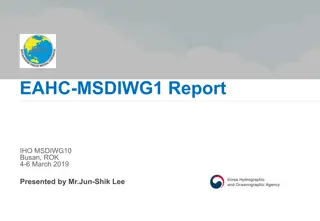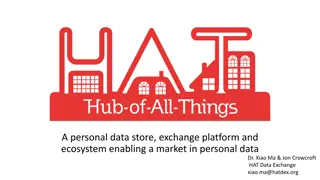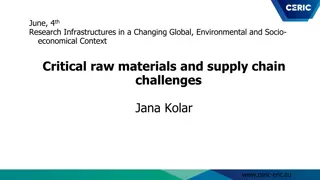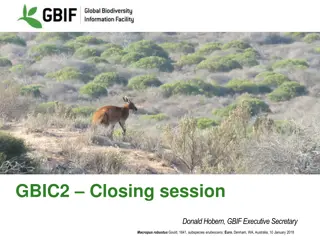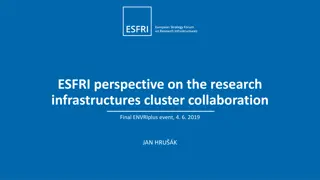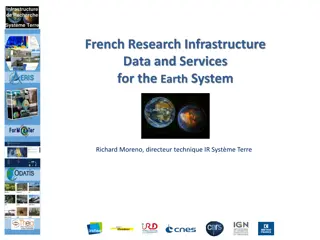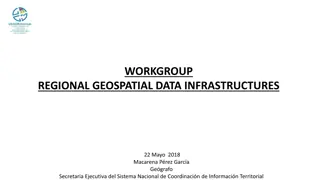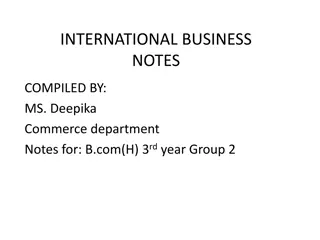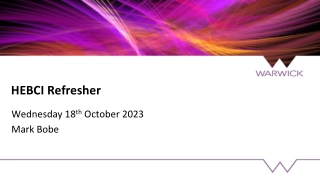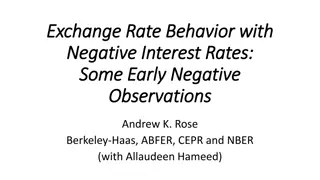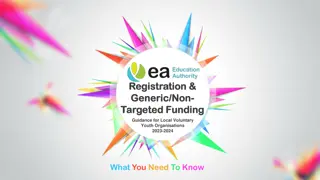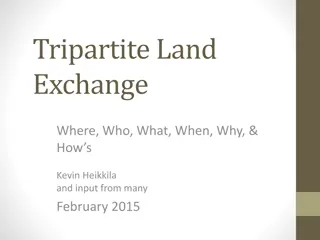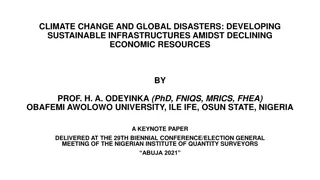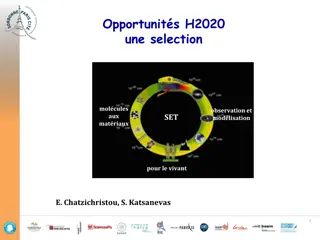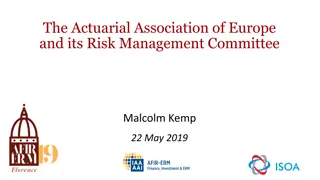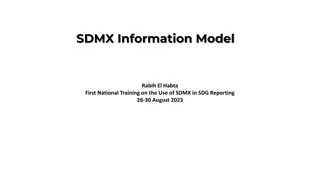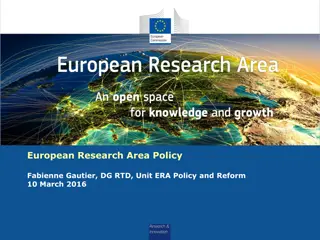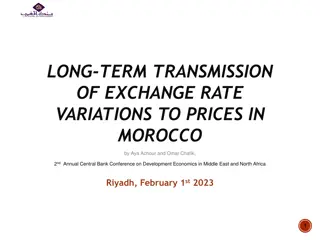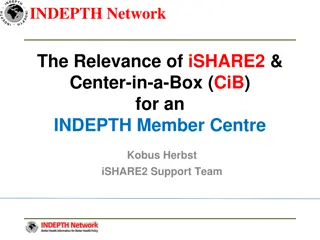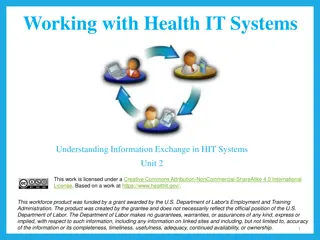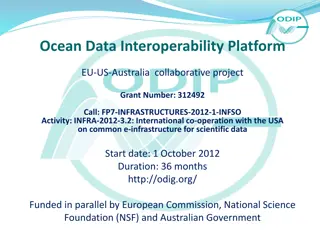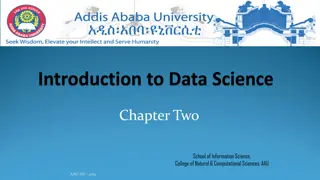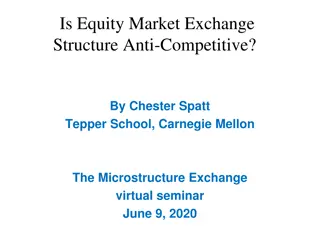Funding Research Data Management and Related Infrastructures Knowledge Exchange & Science Europe
This content highlights the collaboration between Science Europe and Knowledge Exchange to promote research data management infrastructure development and funding. It discusses the importance of responsible research data management and the challenges faced in funding research data infrastructure. Various key issues, reports, and initiatives in this area are also presented.
Download Presentation

Please find below an Image/Link to download the presentation.
The content on the website is provided AS IS for your information and personal use only. It may not be sold, licensed, or shared on other websites without obtaining consent from the author. Download presentation by click this link. If you encounter any issues during the download, it is possible that the publisher has removed the file from their server.
E N D
Presentation Transcript
Funding Research Data Management and related Infrastructures Knowledge Exchange & Science Europe Bas Cordewener, Knowledge Exchange Big Data event, KIT - 5 October 2016, Karlsruhe
Science Europe and Knowledge Exchange About Science Europe Science Europe is an association of major European research funding and research performing organisations in 27 countries, established in 2011 to promote the collective interest of its members and to foster collaboration between them. About Knowledge Exchange Knowledge Exchange is a collaboration between five (soon six) national organisations supporting the development of ICT infrastructure for higher education and research. KE was established in 2005 to facilitate structural exchange of knowledge, experience, strategies and operations between partners. 2
Knowledge Exchange German Research Foundation Jisc (United Kingdom) Denmark s Electronic Research Library SURF (Netherlands) CSC IT Centre for Science (Finland) Five key national agencies and bodies within Europe responsible for the development of infrastructure and services to support the use ICT within education and research. 3
Knowledge Exchange issues and reports Petition to support OA to EC Interoperability between Repositories and CRIS Website OA success stories Multi-national journal licensing pilot Response to EC RD ambitions: a Surfboard for Riding the Wave Collaborative Research: VREs, Tools, Data Persistent Identifier project (URN-NBN, Handle, DOI at one table) Guidelines for interoperable Usage Statistics for OpenAIRE Discussion paper Open Knowledge (eco-system approach) Authority Files (controlled vocabularies) Author Identifier Summits (ISNI, ORCID at one table) Value, Cost, Pricing, Sharing, Funding of Research Data (Infrastructures) Sustainable Business models of OA services Research Software Sustainability Briefing Paper on Funding RDM and related RDI 4
Why explore Funding RDM & RDI? Responsible Research Data Management (RDM) is a pillar of quality research. In practice good RDM requires the support of a well-functioning Research Data Infrastructure (RDI). One of the challenges the research community is facing is how to fund the management of research data and the required infrastructure. 5
RESEARCH DATA MANAGEMENT is defined as the process, services and policies covering how the data used by, or generated from, research is organised, structured, stored, and cared for to ensure both its preservation and re-use. 6
Key conclusions 1. Stakeholders are well aware that science and scholarship increasingly depend on infrastructures (RDI) supporting sustainable Research Data Management (RDM) 2. The funding actors, levels and disciplines are not part of a coordinated structure! Funding of RDI, enabling RDM, comes from various sources and institutions with different responsibilities at local, national or international level often influenced by particular disciplinary dimensions 7
Key conclusions 3. Consequence of uncoordinated funding: RDI providers have different perspectives on their roles and responsibilities, which is a hindrance for effective coordination RFOs and RPOs fund RDI providers to realise an infrastructure that enables RDM, but RFOs have no common view on who should be responsible for sustainable funding of RDI RPO-funded RDI providers tend to service the their own (funding) organisation The resulting RDM services represent (too) many flavours: local, national, international and discipline specific with different or overlapping beneficiaries 8
Key conclusions 4. Specifics for RDM and budget scope for required RDI are usually not clearly defined as part of standard research funding. Let alone that specific RDM requirements at different phases in research process/data life cycle are recognised 5. It has been known for a long time: costs and funding for RDM/RDI need to be better defined and coordinated The KE & SE survey flags that the problem persists! 9
Key conclusions 6. Lack of a common view on roles of actors with regards to RDM and RDI disables funding mechanisms to respond to shifting demands (management, preservation and sharing of data across borders, disciplines and organisations Sustainability of RDI/RDM is at risk if funding remains mainly project based. Need for sustainable business models and responsibility frameworks need to be developed. coordinated approach especially national and European level of funding RDI! 7. 8. Main sources for funding RDM/RDI are government and (depending on discipline) private sector: responsibilities and acknowledgement of common and specific ambitions need to be balanced 10
To solve a problem, cut it in pieces Challenges related to who is funding what re RDM and RDI 1. Funding of RDM: the variety of and mismatch between various funders 2. Budget Allocation to RDM and RDI: no clarity about value of archived reusable data 3. Which data should be preserved and for how long 4. The role and responsibilities of national and European funders 14
To solve a problem, cut it in pieces Phases of the research cycle present distinct RDM & RDI challenges 1. Actual research stage: researcher in charge/responsible, budgeted costs should be covered by research grant 2. Immediately after the research stage: deposit of data according to agreed DMP: costs are not yet/should be covered by research grant responsibilities depend on RDM policies 3. Keeping Data available (for replication, validity) costs and responsibility usually with RPO, but after some time the reasons to keep data available is no longer theirs 4. Continued Preservation There are costs, but who will gain? Open Data principles vs profitability model. 15
Easily said by KE, what will they do ? Work on Open Scholarship challenges aspects/hurdles RLC phases Ideas Discovery Planning Apply for Grant Project Experiment Data production Data management Organisational hurdles Technical hurdles Cultural and social hurdles Incentives and rewards Financial hurdles Legal hurdles Career and Training Authority Files Open Knowledge paper Surf Board for Riding The Wave Surf Board for Riding The Wave RDM Training & Skills work Funding RDM briefing Data analysis/software Research Tools use Cases Research Software Sustainability report Research Tools use Cases Writing Publication Open Access OA sustainability index OA Policy Dependency work OA sustainability index Closed Access Data sharing Motivations & Incentives report The Value of Research Data Metrics The Value of Research Data Metrics Making Data Count Making Data Count Open Knowledge paper Preservation/findability/refere ncing Dissemination Digitisation National implementations of ORCID & ISNI Authority Files Price of keeping knowledge Snapshot Digitisation 16
Big Data at risk? The survey represents all types RFOs, RPOs and RDI providers including established or upcoming Big Data producing disciplines The lack of coordination in funding RDM and related infrastructures illustrates lack of coordination regarding funding aspects related to all Research Data, such as governance, security, preservation, accessibility Stakeholders (not just funders) with an interest in Research, including Big Data, should be aware that they are part of the problem if they do not enter into coordinative collaboration with one another. 17
Questions are very welcome! Find the full report at: http://goo.gl/dqt5z5 More information: www.knowledge-exchange.info s.james@jisc.ac.uk Continue the conversation: Bas.Cordewener@jisc.ac.uk
